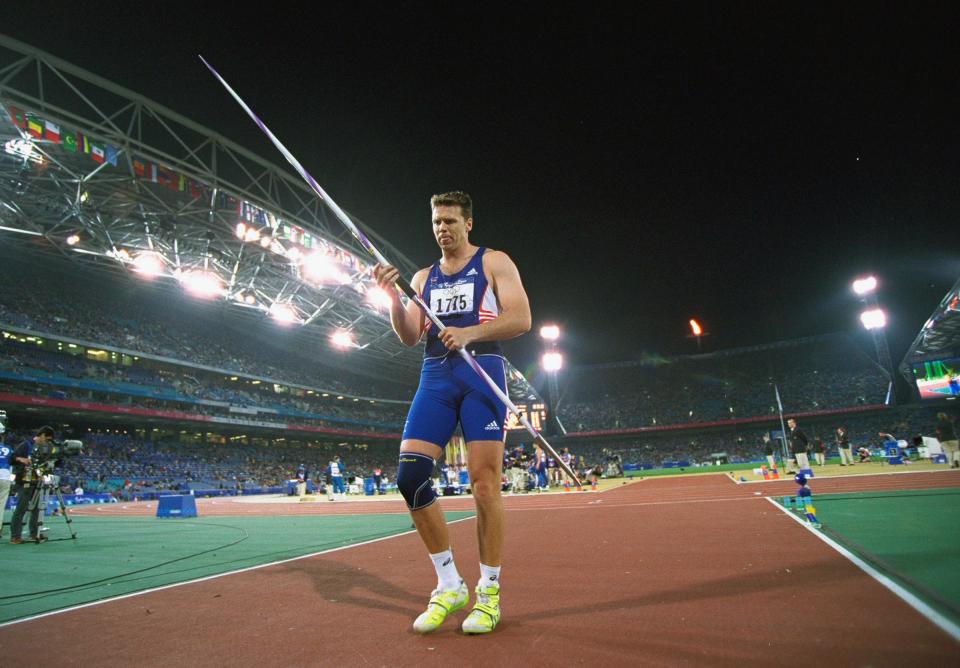Backley: support network crucial for athletes to thrive

"Doing it alone was never an option, there's no such thing as an individual sportsperson at the top end of elite sport. It just doesn't exist.”
Steve Backley knows better than most just how important it is for an athlete to hold a strong support network.
Without one, he wouldn’t have thrown a javelin for nearly two decades. Nor would he have picked up three Olympic medals, four European titles and the honour of being IAAF Male Athlete of the Year in 1990.
Backley’s own hunger, desire and determination certainly went a long way, so too did the physical and mental work put in to reach the best shape he could.
But it’s the efforts of those behind the scenes that took him from an aspiring athlete to a world record-breaking one at the height of his abilities.

"That support network was crucial. We talk about pieces of the jigsaw, and that network forms around half of the pieces that you need to be able to succeed at the top level,” he said.
“You have your parents, training partners, your first technical coach. Then further in, you’re looking at strength and conditioning, doctors, physios and, of course, the psychologist.
“There were so many people involved who excelled in their fields, it was a luxury position for me to be in, and I wouldn’t have been able to celebrate the highs of performance without them.
“I was on the operating table just a few months before my Olympic silver medal in 1996, but they got me back and competitive from a situation I could have just walked away from.
"People think of a sports team as the XV in the All Blacks, or the four in a rowing boat, but it goes far beyond that.
"It's the equivalent of thinking a try in rugby is only scored by the player who touches the ball down – there is so much work that goes on behind the scenes, some of it seen, some of it not, that makes all that happen.”
😂 I remember being quite close to that hammer cage that evening. https://t.co/gyNlKnylk9
— Steve Backley OBE (@Steve_Backley) May 21, 2020
With only one competitor throwing at any one time, few sports are framed around mastering the art quite like javelin.
By his own admission, Backley didn’t possess the perfect physique for throwing a 2.5m spear as far as he could but he made it work his way on the biggest stage of all.
But it was never completely straightforward for the 51-year-old, realising that in order to get better, you sometimes have to make mistakes.
He continued: “A lot of my career was focused on the cycle: try, fail, learn and adapt. In life, as well as sport, it’s so important and a mantra that keeps you going.
“If you think there is only one winning formula and you stick to that and nothing else, you won’t last long. There’s a lot of change and adaptation to be made.
“Fifteen years at top-level sport is a long time, but keeping it simple was a big help in that. There was a hunger and desire to aspire and achieve what I wanted to achieve.
“You also need to have that flexibility and appreciated of change, and a need to reinvent yourself, at times.”
All good things must come to an end and Backley’s curtain fell following the Athens 2004 Olympics – the fourth Games appearance for one of Britain’s finest and well-loved athletes.
But even he wasn’t immune to the comedown effect that comes with international retirement, bringing to a halt a career he cherished for the majority of his life.
Like many, Backley was faced with a challenge of how to fill the void.
But in wanting another ‘Rubik’s Cube’ puzzle to solve, he found the solution in a way that suited him best.
“The best piece of retrospective advice I learned and then looked to pass on is to try not to replace what you did – a lot of people attempt to directly replace their career and end up quite despondent,” he continued.

"You'll never replace that. But the thing to do is find out why you were doing that sport in the first place and replace those component parts.
"If you're project driven, and love the physical challenge, or being in a competition, or a training group - work out what you love and replace those component parts individually, because that's much easier to do.
"For example, I play a lot of golf with (former sprinter) John Regis. We'll have a bit of fun, reliving a few of the old stories, but we're also going there to scratch an itch and the desire to compete.
"Golf is my new Rubik's Cube, it's a sport that is really difficult to master but will offer you fleeting glimpses of what the elite level looks like.
"It's the only sport in the world that for, one shot in the round, I can hit as good as Tiger Woods.
"I can chip in, hole a 20-foot putt – in most other sports, you couldn't replicate that. And that for me, keeps me going in a life beyond competitive sport.”
Please visit www.sportsaid.org.uk for more exclusive content from currently supported SportsAid athletes, their parents and guardians, and the charity’s extensive alumni!

 Yahoo Finance
Yahoo Finance 